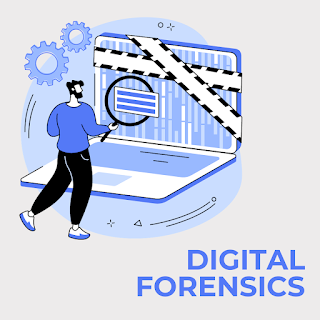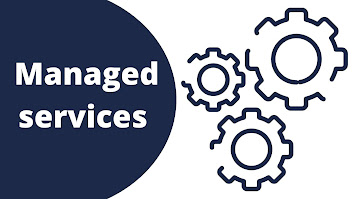Managed IT services refer to outsourcing certain IT processes and functions to third-party service provider for maintaining, monitoring and managing IT systems on behalf of businesses.
When seeking for the best Managed Services in Cape Town, it
is imperative to consider the one with good experience and expertise.
There are many significant areas they should consider before
making informed decision. This is important to make sure they collaborate with
the provider that provides services in sync with the needs, goals and
expectations of the businesses.
These considerations are important for establishing a
long-term partnership that is scalable and adaptable to the evolving landscape
of technology and business needs.
Here are key areas-
1.
Services and specializations: It is important to evaluate with the specific Managed
Services in Cape Town offers a wide range of services that match your
business’s current and future IT needs. Also, consider if the service provider
has specific expertise in areas critical to business, like cyber security,
industry-specific applications and cloud services.
2.
Experience and reputation: It is advisable to hire managed services provider that has
good experience and expertise in your niche. This will enable the managed
services to understand unique challenges and regulatory needs of your business.
Also, request testimonials and check reviews to know the reputation of the
service provider in Cape Town.
3.
Clear agreement: Check if the agreement defines what services will be provided along with
performance benchmarks and response times. The agreement should accommodate the
business growth and evolving needs, allowing for adjustments to services in
future.
4.
Security: Check
the provider’s approach to data security including data encryption, firewalls
and intrusion detection system. Also make sure the provider has experience with
the specific regulations with which your business operates and help you
maintain compliance.
5.
Disaster and data-backup recovery: Check the service provider’s capabilities in data
backup, disaster recovery planning and business continuity strategies. Also
ensure their recovery time objectives and recovery point objectives are in sync
with your business needs.
6.
Cutting-edge technology: Make sure whether the service provider uses the
state-of-the-art technologies that are in sync with the IT strategy of your
business. Check the infrastructure of the managed service providers in Cape
Town for reliability such as multiple data centers, high availability
configurations and redundancy practices.
7. Customer support: A professional service provider offers 24/7 support with accessible
communication channels. They also offer proactive monitoring of your systems
along with regular and transparent reporting on performance and incidents.
8.
Scalability: It
is important to ensure the managed services provider in Cape Town can scale
services tailored to the growth of your business and changing needs. The
reputed managed services willingly adapt services in sync with business and technology
changes.
9.
Pricing: A
reputed service provider looks for clear, straightforward pricing structure
that is in sync with financial planning and budget. Before finalizing with the
service provider ensure the costs aligns with the services provided.
Choosing the right managed services in
Cape Town is a key move that requires careful consideration of aforesaid areas
to ensure desirable outcome that enhances the operational efficiency of the
business and secures their digital assets.



.jpg)


